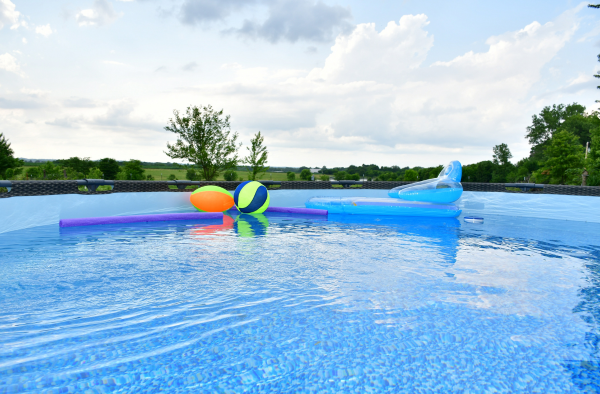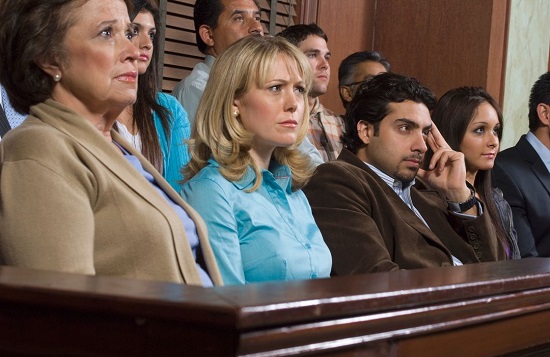Swimming pools are like personal oases in the backyards of countless Michiganders. While they are relaxing, visually appealing, and generally add value to your property, pools can also be a major hazard!
If you aren’t careful as a pool owner you could end up with a serious lawsuit against you. This blog looks to provide readers with a basic understanding of premises liability law in Michigan, as well as steps you can take to prevent a mishap as a pool owner.
What Is Premises Liability?
Owning a home entails more than just HOA fees, landscaping maintenance, and utility bills. As a homeowner, you are expected to maintain a safe environment for guests, visitors, and in some cases, even trespassers. Premises liability refers to a legal concept that is used to hold property owners liable for injuries resulting from unsafe conditions on their property.
Duty to Guests vs. Trespassers: Part of what makes premises liability law interesting is the way that it protects individuals who you might not even want on your property. Under premises liability law, you have duties owed to invitees (given explicit permission), licensees (have implied permission), and strangely enough, trespassers. While the first two duties seem reasonable – looking out for the safety of a friend or neighbor or contractor – the fact that trespassers are sometimes protected under premises liability law may seem like downright insanity. The attractive nuisance doctrine may help explain this peculiar legal protection.
Pools as Attractive Nuisances: In Michigan, the attractive nuisance doctrine holds property owners liable for certain hazards that are likely to attract children and pose risks to their safety (even if the children are trespassing).
Pools are the quintessential example of an attractive nuisance. Slippery surfaces, lack of supervision, or inadequate safety barriers can all lead to serious injuries — and potential legal consequences. If someone is hurt in or around your pool by a factor that could have been prevented with reasonable care – you could be held liable by Michigan law!
Common Pool Hazards & Protective Measures to Take
So, what exactly does reasonable care look like? How can you ensure you are meeting the very high standards for safety put in place for pool owners? The next section of this blog aims to explain what the most common pool related hazards are and how to safeguard against them as a pool owner.
Lack of Proper Fencing or Barriers: Not having a pool fence, having too low of a fence, or leaving the gate open are all potentially serious pool hazards – especially for children. If you aren’t careful, improper fencing can lead to drowning and death.
- Solution: Ensure your pool is properly fenced! A minimum fence height of 4 feet is required in the state of Michigan. The fence must not be easy to maneuver under, pass through, or climb over. The gate through which individuals enter and exit the pool enclosure also must be self-closing and self-latching.
Slippery Surfaces: Wet concrete and tile around a pool can become extremely slippery. Paired with deep water, slippery surfaces around pools can be a deadly combination.
- Solution: Using non-slip mats or tile can help greatly reduce the likelihood of individuals slipping and falling near the pool. Clear “No Running” and/or “Floor May Be Wet” signs can also help alert pool users of potential slip and fall hazards. Frequently cleaning the pool of algae and debris can also help mitigate the slip and fall risk.
Diving Injuries: Shallow pools without depth markers or “No Diving” signs can be a major hazard – easily leading to serious head and spine injuries.
- Solution: Install depth markers around your pool in clearly visible areas. Placing “no-diving” signs around shallow, dangerous-to-dive areas is also a great way to discourage unsafe pool use. Beyond putting up signs, verbally making swimmers aware of shallow areas is a safe and responsible practice.
Lack of Supervision: Drowning is the leading cause of death for children ages 1-4 in the U.S. One of the main times that drownings happen is when children gain unsupervised access to swimming pools – the number one place where these accidents occur.
- Solution: Always have an attentive, responsible adult present when there are kids in or near the water. Another great idea is to create a set of “pool rules” to post somewhere visibly beside the pool. Examples of solid rules include:
- No running by the pool
- No diving
- No swimming without an adult present
- No swimming past 10pm
By creating and enforcing a set of rules like the ones above, you can help reduce the frequency of tragic pool drownings due to lack of supervision.
Broken or Defective Equipment: Faulty ladders, sharp edges on cracked pool tiles, malfunctioning pool lights, and even broken drain covers can all lead to sneaky injuries and dangerous situations. These are all things that you may not have initially checked at the start of the season or as a new pool owner.
- Solution: Conduct weekly inspections of your pool, paying particular attention to:
- Pool structure (tiles, edges, railings)
- Entry/exit points (ladders, handrails)
- Electrical components (lighting, filtration systems)
- Safety hardware (drains, covers, pumps)
Make sure to log any maintenance and repairs to strengthen your legal defense in the event a claim is made against you. Also, hiring a licensed pool technician for annual checkups is a great way to make sure your pool is in tip-top shape.
No Warning Signs or Safety Equipment: As mentioned in some of the tips above, posting signage around your pool can be helpful for various reasons. Warning signs can alert pool users of potential hazards and lay the ground rules for safe pool behavior. In addition, having throwable flotation devices by your pool can help create a culture of safety and vigilance.
Not having proper signage and/or flotation devices could lead to serious injuries – and you getting held liable!
- Solution: Post clear, easy-to-read signage around your pool. Include warnings, pool rules, no diving indications, depth markers, and anything else you think it may be useful to let swimmers know. Having a throwable flotation device nearby is also a great idea – especially if there are children in the water who struggle to stay afloat.
Get David Get Paid
If you or a loved one was recently injured in or around a swimming pool, reach out to Femminineo Law today. Our team holds pool owners accountable, and will fight tirelessly for you!
Give us a call today at 855-65-CRASH or visit our website at getdavidgetpaid.com.
Get David, Get Paid.



